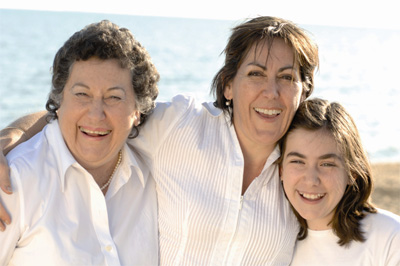A Pap Test Every Two Years Until the Age of 70

A Pap Test Every Two Years Until the Age of 70
For many women in Australia, having two-yearly Pap tests is just part of life. Unfortunately however, around 40% of Australian women don't participate as regularly as recommended, thereby increasing their risk of cervical cancer.
It is recommended that all women aged between 18 and 70 who have ever been sexually active have a Pap test every two years. This includes women who have had the HPV vaccine.
You probably don't hear about cervical cancer all that often, and that's largely due to our incredibly successful screening program which protects around 1,200 women from being diagnosed each year. In fact, since the National Cervical Screening Program was introduced in 1991, the incidence and mortality rates from this disease have halved.
Why then are so many women failing to participate every two years?
There are some common barriers cited by women when it comes to screening. These range from not having access to a female service provider to feeling too busy to make the time for an appointment. However the main reason women give for not having regular Pap tests, is embarrassment.
We understand having a Pap test might feel a bit awkward or uncomfortable, but it could save your life. Around 90 per cent of women diagnosed with cervical cancer have either never had a Pap test or not had them regularly in the 10 years before diagnosis.
Pap tests check for changes to cells of the cervix that if left undetected and untreated may lead to cervical cancer. The test detects changes before they become cancer, when treatment is usually simple and effective. The early stages of cervical cancer usually have no symptoms, and can only be detected by a Pap test.
Cervical cancer can take up to 10 years to develop and the risk increases with age, so it's really important women continue having two-yearly Pap tests until they're 70 (provided their previous two tests have been normal).
There are some circumstances under which women don't need to have Pap tests. If you're not sure we encourage you to speak to your doctor.
For further information on Pap tests and cervical cancer please visit www.papscreen.org.au or http://www.cancerscreening.gov.au/ or call the Cancer Council on 13 11 20.
Published with the permission of the Jean Hailes Foundation for Women's Health
Tollfree number 1800 JEAN HAILES (532 642) for women seeking further health information www.JeanHailes.org.au
MORE
- Menstrual Period Management
- The Secret to Weight Loss
- Feeling The Pain: How To Tackle Period Pain
- Period Pain and How to Survive It
- Gender Specific Medicine
- Helping Women To Start Those 'Difficult'...
- Michelle Boyd Ellura Interview
- Menopause Does Not Protect Women From Cervical...
- Five Ways to Balance Hormones
- Do You Really Know What Is Going On Down There?
- Do You Know Your Breasts?
- Dr. Stan Goldstein Sexual Health Choices Interview
- Breast Health Decision Question and Answers
- Breast Cancer Treatment Impacts Patients' Sex...
- Bladder Weakness More Common Than Hay Fever
- Belinda Reynolds How To Manage UTI's Naturally...
- Treat Bones Like Breasts
- Mammogram Technology
- Soodox for Women
- Chlamydia Most Commonly Reported STI In Australia
- Time For Reflection Is Great For Mental Health



